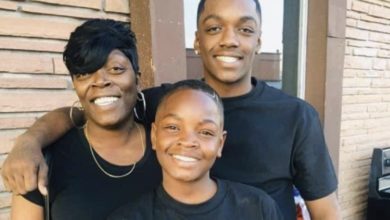On July 24, Barack Obama withdrew his earlier statement that the Cambridge police had acted “stupidly” by arresting Professor Henry Louis Gates, Jr., affirming once again that the U.S. government will be no ally in the fight against racist profiling and police brutality. Just three days after Obama’s moment of candor—in which he mentioned the “long history of Black and Latino youth being stopped disproportionately”—he personally telephoned Sergeant Jim Crowley and then drudged back to the podium to call him an “outstanding police officer and a good man.” He now asserts both Crowley and Gates overreacted.
|
Although a distinguished and wealthy Harvard professor, as a Black man Mr. Gates’s constitutional rights are automatically subject to police violation—even inside his own home. Mr. Gates was not arrested because he failed to identify himself as the legal occupant of his home—he did. He was not arrested because he caused a public disturbance—he was standing on his own property, and, with a bronchial infection, his sharp exchange with the officer could hardly be accused of waking the neighbors. No, he was arrested because he stood up for himself, called a white police officer a racist, demanded his badge number (also a legal right) and started to file a complaint with the officer in his house.
In New York City last year, the NYPD conducted 500,000 stop-and-frisk searches; over 80 percent were of young Black and Latino men. In Washington, D.C., the police set up checkpoints around certain predominantly Black communities as a way to harass and monitor anyone who enters. The only reason the police called Gates’ arrest “regrettable” was that Crowley arrested the wrong type of Black man: one with the means and the connections to defend himself.
In the last several years, public legal defenders in the Bronx, one of the country’s poorest counties, have reported a sharp increase in one particular type of incident: trespassing. Ever since the New York Police Department launched its “Clean Halls” program, tens of thousands of Bronx residents have been subjected to unwarranted stop-and-frisk harassment while walking inside or between apartment buildings.
Those who fail to produce identification matching the building address—including those who have come to visit friends or family members—are subject to detention or outright arrest. While police officers are supposed to check if the apartment resident knows the detained person, this step is routinely bypassed.
In short, it becomes an excuse to stop and search every Black and Latino young man; it is urban apartheid, Jim Crow with a pseudonym. Bogus additional charges—intent to purchase narcotics, resisting arrest, disorderly conduct—are often tacked on if anyone dares question or defy these Gestapo tactics. Thousands of the shady arrests end in guilty pleas; drugs are planted, confessions are invented or the officer simply makes up a story. In a world with few witnesses and no cameras, it is your word against the cop’s.
How can this system be rooted out? Not with more “sensitivity training”—Crowley himself was a police instructor in racial profiling! Nor can we hope for the situation to improve based on the gradual replacement of this or that politician; Obama’s capitulation was a chilling reminder of just how sanctified the police are within the state.
Only a people’s movement—which puts the police on the defensive, holds the top cops responsible, and ultimately raises the question of who controls the state and our communities—can reverse this situation. Otherwise, the Gates arrest will be just another episode in the long-running saga of police abuse—an episode to be constantly replayed in the hallways and streets of oppressed neighborhoods, where no one is watching.







